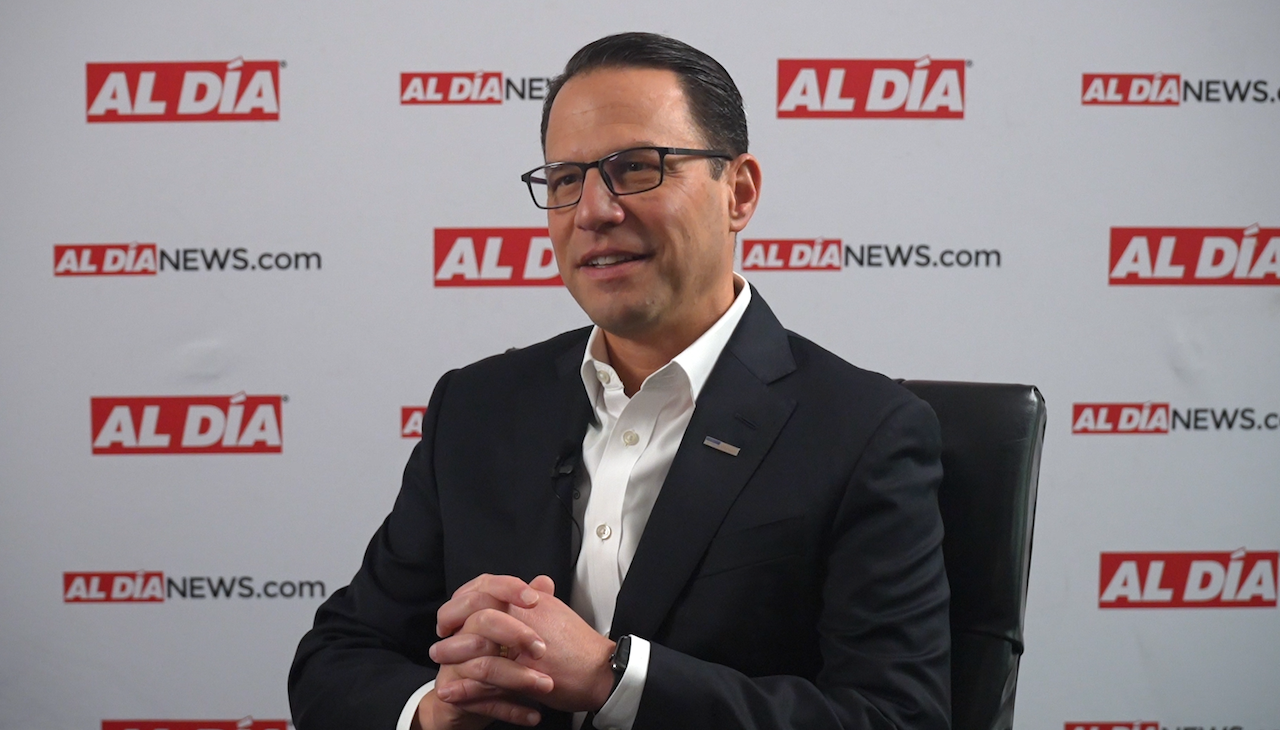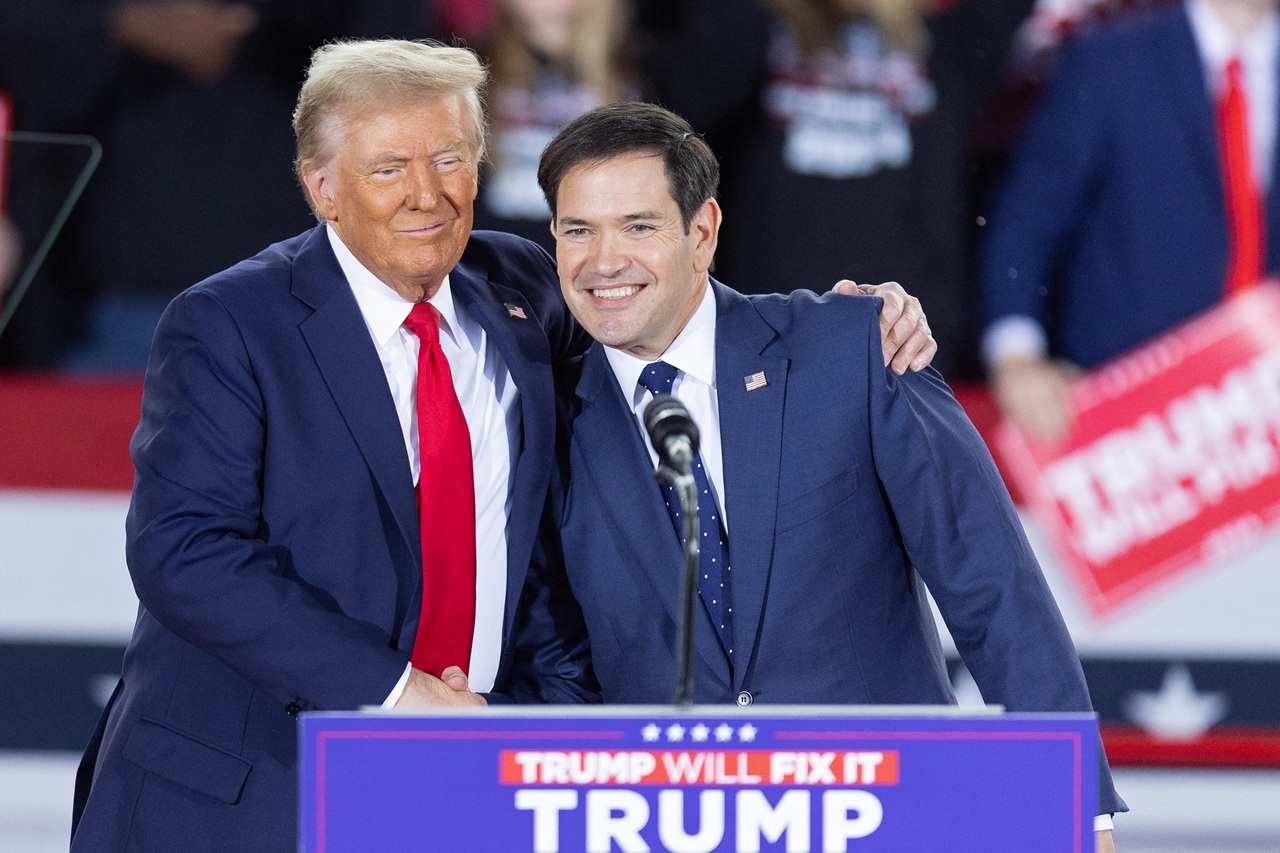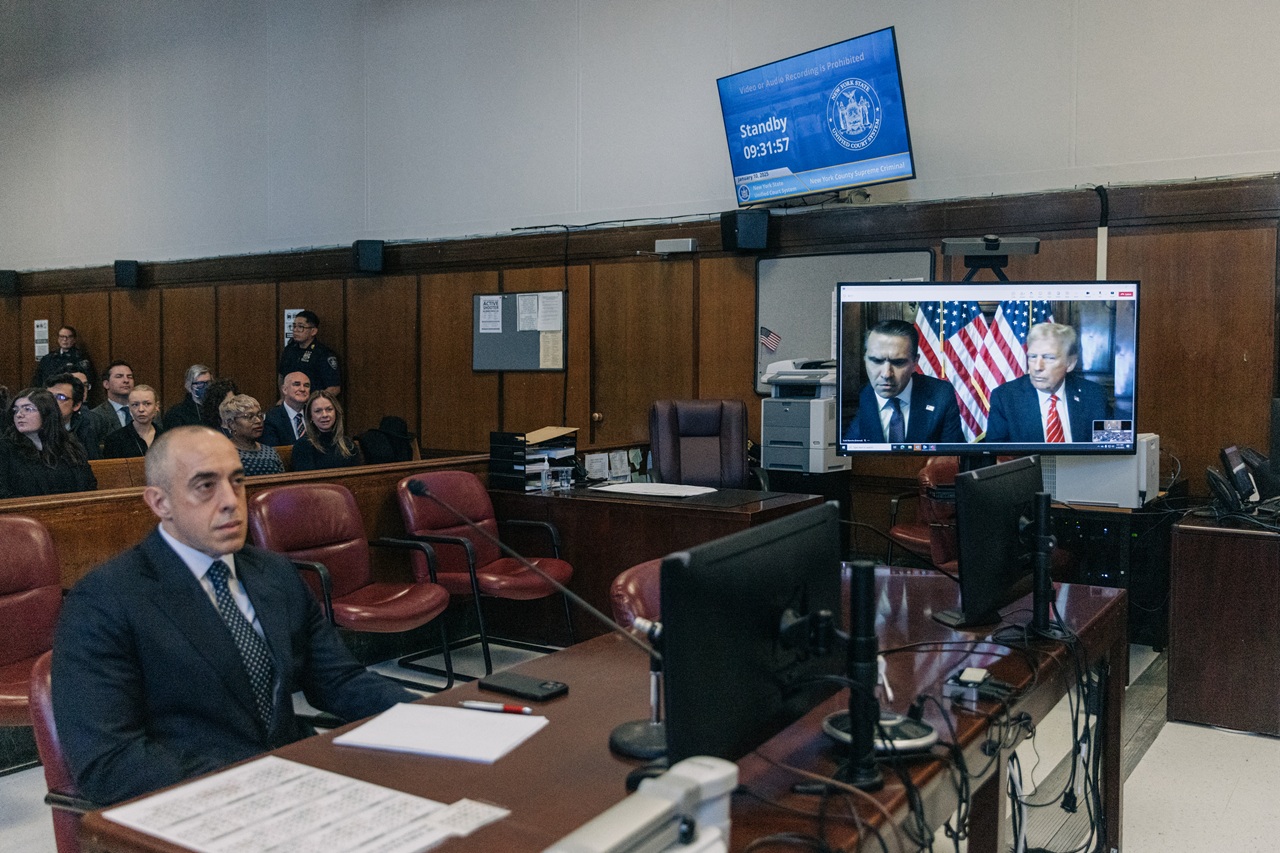
Governor Josh Shapiro's Latino vision for Pennsylvania
In a sit-down interview, Governor Josh Shapiro spoke to AL DÍA about PA’s Latino population — their affairs, the policies that affect them, and looking ahead.
AL DÍA Political fellows Alan Nuñez and Carlos Nogueras wrote this report.
Weeks before Pennsylvania Governor Josh Shapiro took his oath of office on Wednesday, Jan. 18th, in Harrisburg, he took a brief detour into Philly to talk all things Latino.
Shapiro, newly elected, had an impossible schedule in the lead-up to the ceremony.
Amid planning for his swearing-in, the former Attorney General spoke to AL DÍA about what his immediate priorities were, his view of Latino affairs and policy, and how much he loved one of the chairs.
“Our focus is on building a strong, diverse cabinet. One that can help me lead Pennsylvania forward,” Shapiro said, and added the cabinet would be “ready to rock and roll on Jan. 18.”
He entered an administration initially poised to have a razor-thin Democratic majority, now evaporated after three seats became vacant and Senate control remained in Republican hands.
But Shapiro, a seasoned politician, was seemingly unfazed.
For Shapiro, unity, first and foremost
“I plan to bring people together to get things done,” he said.
Striding to the PA Capitol, Shapiro will lead a class anew of Latinos who came out victors in their respective races and who “will now be around the table of progress, making decisions, making sure the voices of their communities are heard in Harrisburg, where for many years, they were not.”
Echoing the sentiments of prominent Latino political leaders, Shapiro hopes the new generation of state lawmakers will spur others to follow in their footsteps.
The Governor was also swift to stimulate a bipartisan message.
“Bring Republicans and Democrats to the table to have the opportunity to get meaningful things done,” Shapiro asserted.
He began that endeavor by appointing Al Schmidt, a Republican who oversaw the 2020 Presidential elections — and who broke rank with his Republican counterparts who spread election misinformation — to assume a renewed role as Secretary of State, his first cabinet-level appointment.
Less conspiracy, more reform
He believes Schmidt is “going to work to help us reform our voting laws in Pennsylvania, to do the kinds of things I want,” he remarked, and spoke of automatic voter registration, pre-canvassing ballots, and continuing to protect vote-by-mail.
On policy, Shapiro told AL DÍA he would continue to build on his predecessor’s work.
Former PA Gov. Tom Wolf, in late 2022, introduced the Pennsylvania Marijuana Pardons Project to allow anyone with low-level marijuana possession convictions to have a chance at getting pardoned.
It garnered criticism after reports revealed that a fraction of those who applied were approved.
“The rules that were put forth were confusing for people,” Shapiro thought. “ It was hard for people to know if they qualified.”
“We need to do a lot more in other languages to ensure that everyone has the ability to know that this program exists. We'll put a lot more out in Spanish to ensure that we're reaching communities that have oftentimes been left behind in this.”
It’s a program the governor feels strongly about and says will thrive under the supervision and guidance of his Lieutenant Governor, Austin Davis.
“You'll see it take on more meaning, [and] value, and more people come through it. More people hopefully will qualify, earn a pardon, will have this slate clean so that they can move forward.”
What it takes to curb the gun epidemic
While on the subject of statewide policy, Shapiro addressed preemption, which advocates and local lawmakers agree has been an insurmountable obstacle in creating new policy, especially around guns.
“Candidly, I don't think those laws will change,” he said, emphasizing his belief in the right to self-governing jurisdictions within county codes.
Shapiro hopes to mimic similar efforts by the Biden administration — lauded as the first tangible gun-reform legislation in decades — which includes universal background checks, further investment in anti-violence programs, and community investment.
“I'm a big believer that our churches and our community organizations and others have a lot of tools that can help protect our kids, primarily, but others in the community, they just need some real investment,” Shapiro, who hopes to onboard 2,000 police officers across The Commonwealth, said.
Shapiro’s sentiment isn’t a far cry from some mayoral platforms that emerged in the last few months, many of which have talked of community disinvestment and zip codes abandoned by police.
He said he’s encouraged by the messaging by candidates, “and I look forward to partnering with them to try and make a difference for Philly.”
Inspiring Latino entrepreneurship
In July, AL DÍA followed then-candidate Shapiro for a small business tour through North Philly, where prospective voters and Latino small business owners got to first hand interact with him.
It was also an opportunity for voters to express to the then-candidate what some of the biggest roadblocks were in scaling their individual businesses, which Shapiro said “breeds a real vibrancy in communities.”
“It shows the strength of a community that leads to lower crime, and it leads to better outcomes,” he said.
But all too often, new entrepreneurs in disinvested neighborhoods are left on the wayside of government programs.
Shapiro offered an example from that day in Kensington.
RELATED CONTENT
The governor-to-be asked Marlon Marz, owner of Marz Auto Central, a car repair shop brimming with clientele and employees, if he could service State vehicles, to which the owner said they weren’t on the approved list to serve the Commonwealth.
“Well, that's not something that costs the Commonwealth money or cost them money. But it's a matter of us giving a damn about these businesses and giving them a shot to be able to do more.”
To that end, Shapiro said, the new PA administration would appoint a Deputy Secretary of Commerce, whose focus would be on “Main Streets” in the state, and engage those small business owners to give them a chance to contract with the state.
“It’s just one example of the ways in which I want to engage more of our small businesses across Pennsylvania,” he said.
The governor, to the date of this publication, has not announced an appointee for Deputy Secretary of Commerce.
{"preview_thumbnail":"/sites/default/files/styles/video_embed_wysiwyg_preview/public/video_thumbnails/ELWT7r30iNg.jpg?itok=isDDbUlB","video_url":"https://www.youtube.com/watch?v=ELWT7r30iNg","settings":{"responsive":1,"width":"854","height":"480","autoplay":1},"settings_summary":["Embedded Video (Responsive, autoplaying)."]}
Where Shapiro stands on immigration
Immigration in PA became a hot-button issue as numerous, isolated issues in the Commonwealth converged in time for the midterm elections.
On the one hand, PA grapples with county residential centers tucked in rural areas, where Immigration and Customs Enforcement (ICE) agents detain migrants seeking asylum in the Northeastern United States.
Shuttered Berks County Residential Center, which closes its doors at the end of January, drew scrutiny as immigration advocates got wind that the remaining detainees — all women — would be transferred to Moshannon Valley Processing Center.
The Moshannon facility is also poised to enter an agreement with Geo Group, a private prison enterprise.
Asked whether he was comfortable with counties engaging in business with for-profit prison groups, Shapiro said: “No. I don't think there should be a place for private prisons here in Pennsylvania. Regardless of who's being housed there. I'd like to see us, at the state level, ban all private prisons.”
Shapiro also urged “the legislature to put [a bill] on my desk.”
Beyond PA, immigration is a policy issue that has sparked a national conversation around urgent lasting reform.
Tensions apexed when Texas Governor Greg Abbott began busing migrants to asylum cities via Operation Lone Star — an effort that inspired outgoing Arizona Gov. Doug Ducey and Florida Gov. Ron DeSantis to follow suit.
“It is clear that we need to have a secure border and humane treatment of those who are here, and clear rules of the road for those who want to come into this country,” Shapiro said, and put the onus on Congress, who “has failed to act.”
“Obviously, these busloads of migrants that are sent to Philly is a stunt by governors, like DeSantis and Abbott, who don't have a clue when it comes to a real answer to the immigration challenges in this country,” he continued.
And as a result, “you have these folks like Abbott and DeSantis, who are acting, I think, without integrity, who were engaging in the stunts, were engaging in what may be unlawful practices.”
But Shapiro remains hopeful after witnessing Philadelphia’s response to asylum seekers, where advocates, in partnership with the city, prepared immediate shelter and resources.
“What I see on the tail end of that are really wonderful people here in the city of Philadelphia, doing their level best to welcome these human beings with open arms and give them the help that they need,” he said.










LEAVE A COMMENT: